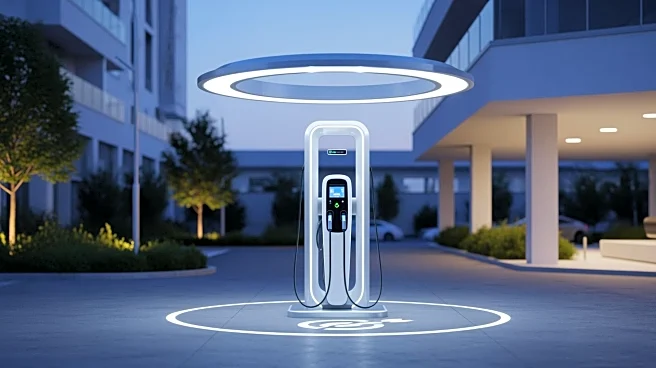What's Happening?
Elon Musk, CEO of Tesla, has been awarded a new compensation plan that could potentially make him the world's first trillionaire. This plan includes up to $1 trillion in stock if certain targets are met,
such as achieving 10 million active Full Self-Driving subscriptions and 1 million robotaxis in operation over the next decade. Despite a 75% vote in favor of this package by Austin shareholders, Tesla faces challenges like declining sales and market share, partly due to Musk's controversial political actions. The compensation plan aims to motivate Musk to meet ambitious goals, including delivering 20 million Tesla vehicles over ten years.
Why It's Important?
The financial incentives for Musk are significant as they could influence Tesla's strategic direction and innovation. However, the effectiveness of such incentives is debated, with some studies suggesting that high CEO compensation does not necessarily correlate with improved company performance. The plan's success depends on Musk's ability to focus on Tesla's objectives amidst increasing competition in the electric vehicle market. The broader implications include potential shifts in how CEO compensation is structured and its impact on company profitability and employee morale.
What's Next?
Tesla's future hinges on Musk's ability to meet the outlined targets, which could redefine the company's market position. Stakeholders, including investors and employees, will closely monitor Tesla's performance and Musk's leadership. The outcome may influence future compensation strategies for CEOs across industries, especially in tech and automotive sectors.
Beyond the Headlines
The ethical implications of such high compensation packages are under scrutiny, especially in light of economic disparities. Critics argue that while Musk stands to gain significantly, many Americans face financial hardships, highlighting the need for a balanced approach to executive compensation.









